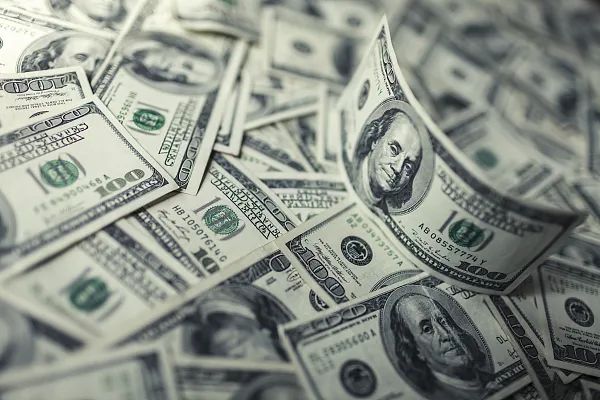China Online Review 丨 U.S. interest rate hikes global bills, when will the US dollar hegemony end?
Author:Chinese network Time:2022.09.26

China
Editor -in -chief: Hua Zhang Yuxin Yuanjing
In 1971, the former Ten -Phaka Group meeting after the disintegration of the Bretton Forest system in the Breton Forest system said: "The US dollar is our currency, but it is your problem." This arrogant saying has become half a half. Since the century, the most vivid football for the US dollar hegemony.
On September 21, the Fed announced another 75 basis points. This is the fifth rate hike of the Federal Reserve this year, and so far, it has accumulated a total of 300 basis points. Its interest rate hike density hit the highest since 1981. Accompanied by it, the US dollar index has continued to strengthen and the currency of other countries has depreciated sharply. The US dollar index rose from almost 95 this year to 110, an appreciation of about 15%, a new high of nearly 20 years. However, non -US currencies such as the euro, pounds, and yen have dived sharply, causing the market to worry about the decline of the world economy.

US dollar picture/visual China
As a "international currency", the US dollar has served as a role in measuring the monetary value standards of various countries. Its every move has a significant impact on the currency value of other countries and even global financial security. As Lenin said, "Financial capital is a huge force that exists in all economic relations and all international relations. It can be said to be a decisive force. The country. "From the Latin American sovereign debt crisis in 1982 to the Mexican financial crisis in 1994, to the Southeast Asian financial crisis in 1997. In the past 40 years, almost every regional financial crisis erupted, there are US dollars behind it, and they are all rising cycles of dollars. And this is not accidental.
The Nobel Prize winner of Economics, Steigritz, has concluded that the United States uses financial means to defeat and control a country usually takes the following steps: US dollar depreciation-capital outflow-pushing the other country's stock market, housing price-USD appreciation-capital return -The core assets of other countries plunge-International Capital Return to the bottom. Throughout the financial crisis, this "financial group boxing" in the United States has been tried and tested.
In the 1970s, due to the influence of the two oil crisis, the US economy fell into stagnation, and the US dollar index continued to be sluggish. As a result, a large amount of capital poured into the Ratin America, such as Brazil, Argentina, etc., and promoted the rapid economic growth of Latin American countries. However, since 1982, the recovery of the US economy has gradually strengthened the US dollar, which has also led to foreign capital withdrawal from the Latin American market. Mexico, Argentina, Brazil and other countries were unable to repay their debts because they did not inflow for new funds, so the sovereign debt crisis broke out, and has since entered the "lost ten years".
Southeast Asian countries implemented the exchange rate system that focused on the US dollar in the 1980s. With the weakening of the US dollar in the late 1980s and early 1990s, Southeast Asian countries have obtained an export advantage due to their continued depreciation of their currencies, and rely on the export processing industry to achieve economic take -off. However, the dollar has entered the appreciation cycle since 1995, and the currency of Southeast Asian countries has also been forced to appreciate. On the one hand, it has led to a decline in export capacity and a significant increase in trade deficits; on the other hand, it also attracts a large amount of international hot money to influx, and quickly pushes the bubble of the stock market and the property market. Under the short sniper of Soros and other international capital, the currency of Southeast Asian countries collapsed thousands of miles, and its wealth accumulated for decades has become black.
Obviously, the Fed's continuous interest rate hike has opened a new round of US dollar appreciation cycle since this year. Various signs show that similar history will be restarted. In order to cope with the impact of the subprime mortgage crisis and the new crown pneumonia's epidemic, the Fed has continuously increased the quantitative easing policy for many years, and the Fed's assets have also risen rapidly from US $ 893.8 billion at the end of 2007 to 8.5 trillion US dollars in June this year. 10 times. The newly increased capital inflows of the sky with a faster economic growth and higher interest rates to obtain higher investment income. However, the continued strengthening of the dollar will inevitably lead to a large number of capitals in emerging markets return to the United States, and even cause some countries to fall into a sovereign debt crisis.
In April this year, Lebanon announced its bankruptcy of its central bank and the central government; on May 27, Malawi, African countries depreciated by 25%; in July, Sri Lanka announced that "the country has bankruptcy", the president and the prime minister resigned successively, and the state entered an emergency. state. In addition, Venezuela, Ghana, Argentina, Turkey and other countries such as the domestic currency against the US dollar fell over 20%during the year, and also faced the risk of debt defaults.

On July 10, 2022 local time, a large number of protesters poured into the presidential secretary office. Figure/People's Vision
It is foreseeable that with the gradual acceleration of the Fed's interest rate hike, the number of countries that fall into the debt crisis will continue to increase, and more and more global wealth will be "harvested" by the United States. The US dollar is a "international monetary currency" in circulation around the world, but the United States has not assumed corresponding obligations to stabilize the world's financial order. Instead, the US dollar hegemony has used the US dollar hegemony to allow other countries to pay for it and even plunder other countries' wealth. However, at the same time, the behavior of the United States' disclosure of banknotes also overdrawn the international credit of the dollar, shaken the foundation of the US dollar hegemony, and put the US dollar into the so -called "Trifen Dilemma".
After World War II, in order to establish the US dollar hegemony, he had confidently established the Bretton Forest system, and directly linked the value of the US dollar with gold reserves. However, an economist Robert Trifen keenly discovered the fatal defects of the Bretton Forest system in the 1950s, that is, there was an irreconcilable contradiction between maintaining confidence in the US dollar and providing international settlement capabilities. In short, in order to allow the US dollar to circulate around the world, it must constantly increase the supply of US dollars and maintain a trade deficit all year round, and at the same time, it must ensure the simultaneous growth of gold reserves. Once the gold reserve cannot keep up with the supply speed of the US dollar, the Bretton Forest system will collapse. In 1971, the disintegration of the Bretton Forest system confirmed Trifen's prophecy. Although the United States implemented a floating exchange rate system after the Bretton Forest system was disintegrated, the "Trifen Dilemma" did not fundamentally resolve it. In the long run, the flood of the US dollar will inevitably constitute a depreciation pressure on the US dollar, and this will inevitably shake the international community's confidence in the US dollar. So we can more thoroughly understand that Connerly said that "the dollar is our currency, but it is your problem". In fact, countries around the world, including China, have long recognized this.
The international monetary system is imperative. In March of this year, Russia announced that it was used to settle the ruble settlement to the United States and EU countries to fight against the US dollar hegemony; in July, the Central Bank of India announced the launch of the international trade rupee settlement mechanism; recently, China, Singapore, Malaysia, Indonesia, It is clear that cross -border settlement is mainly based on RMB and domestic currencies; recently, Australia has announced that it will adopt iron ore trade between Renminbi settlement.
The Federal Reserve ’s interest rate hike cycle is far from over, and we cannot predict who will be the next Domino. But every time the US dollar overdraw its international credit, the US dollar hegemony is one step closer to the end. As Michelle Wulker described in the book "Gray Rhino", rhinoceros stare at us on the distant horizon. Although it looks far away, it will come sooner or later.
- END -
Dao Guanhe Reservoir is full of Baikoutang weir, and Xu Yicun has more than a thousand acres of farmland to relieve thirst

The Yangtze River Daily Da Wuhan client August 16th Everyone has hurriedly irrigat...
Experts believe that the price of pigs will run in a reasonable range
Recently, some experts in the industry of the National Development and Reform Commission of the National Development and Reform Commission held a meeting to re -analyze and judge the domestic pig mark